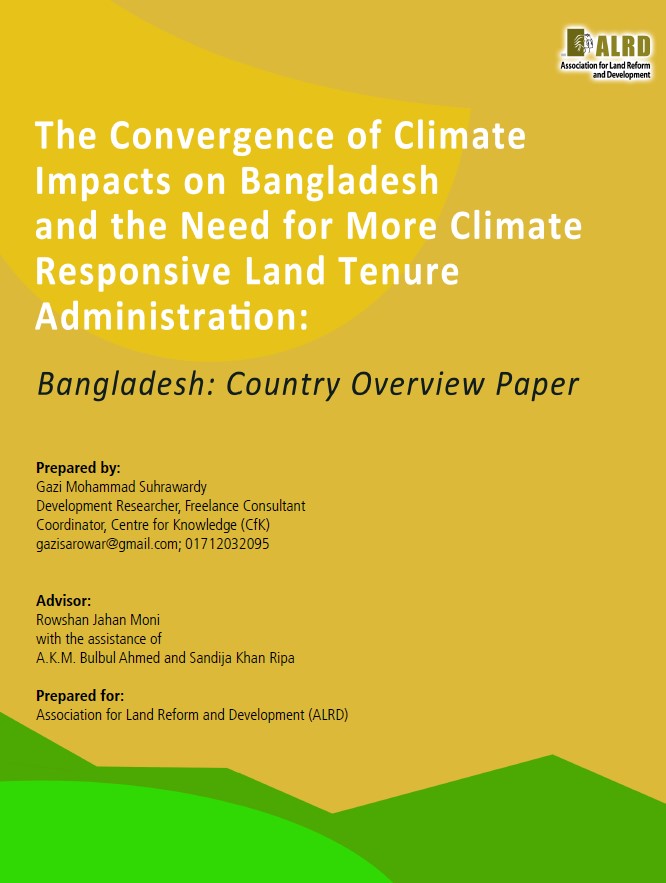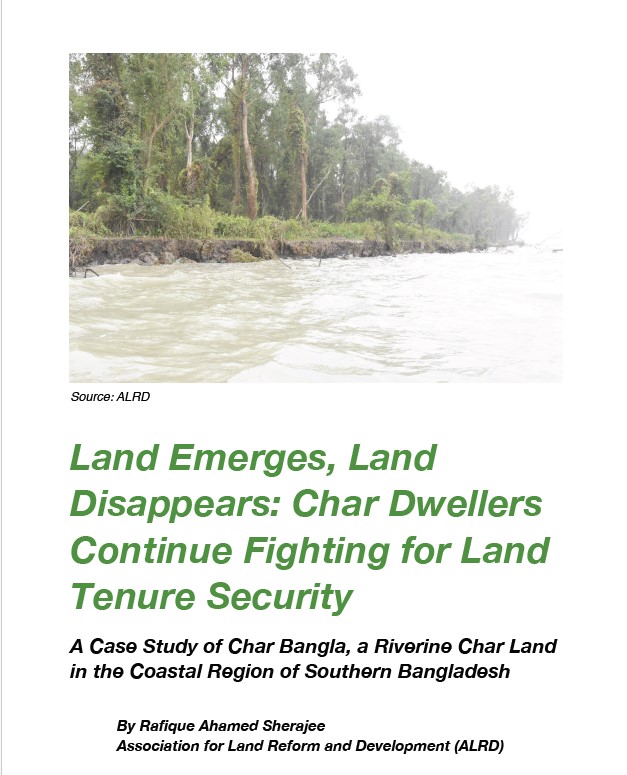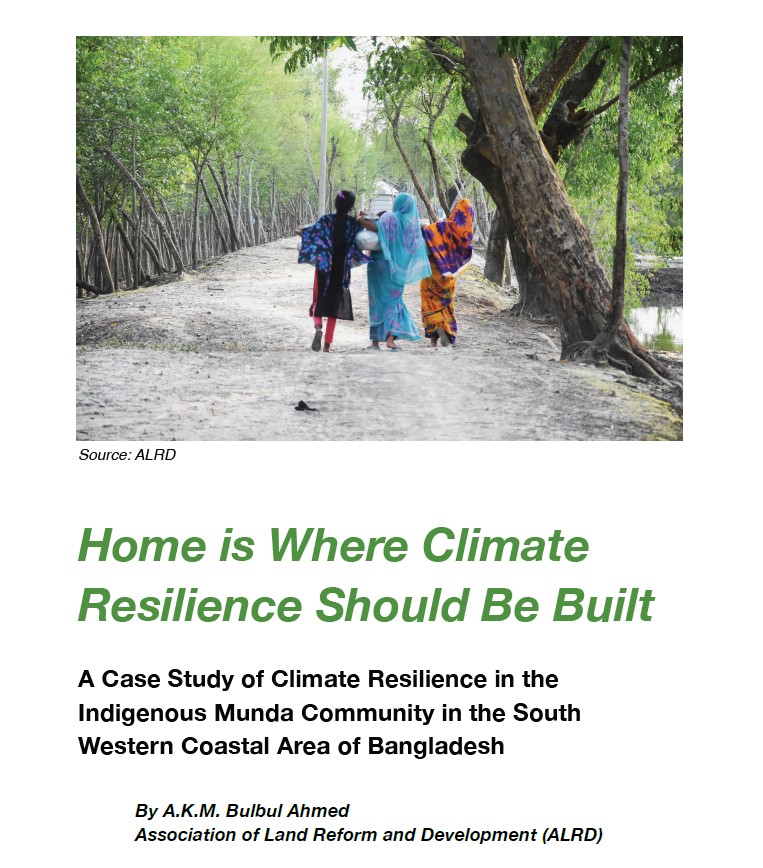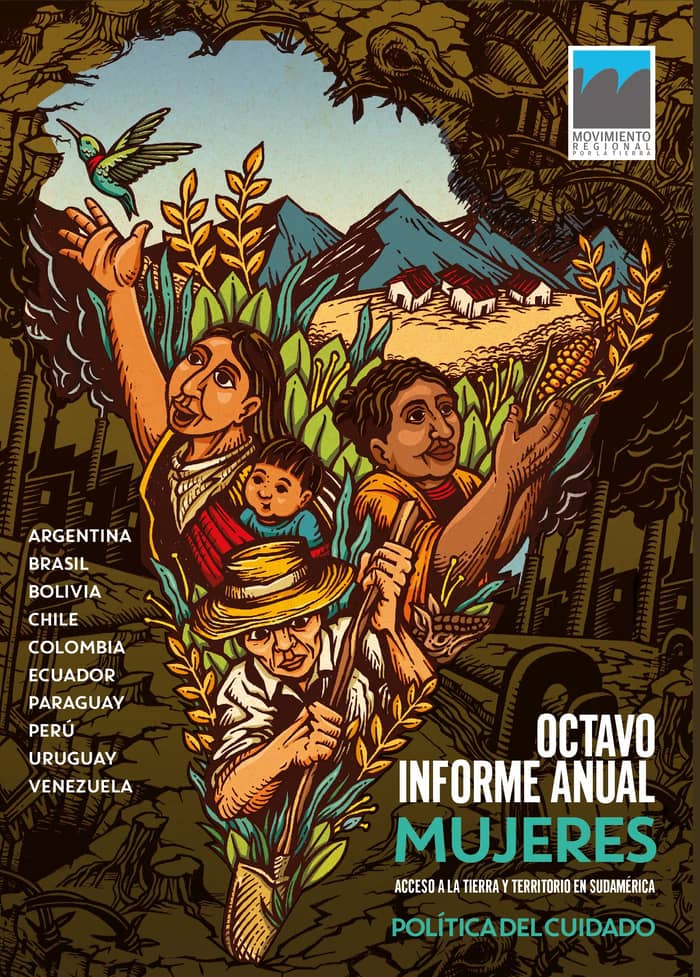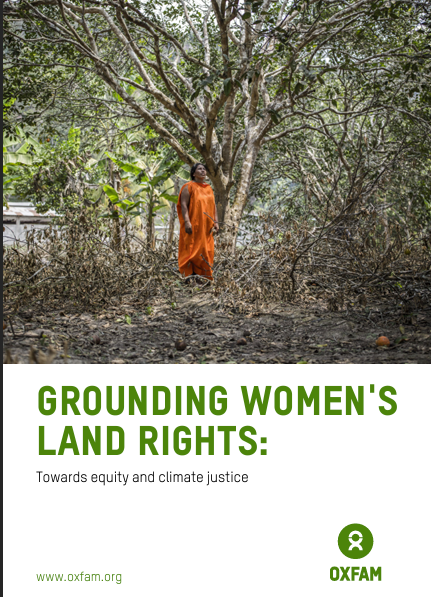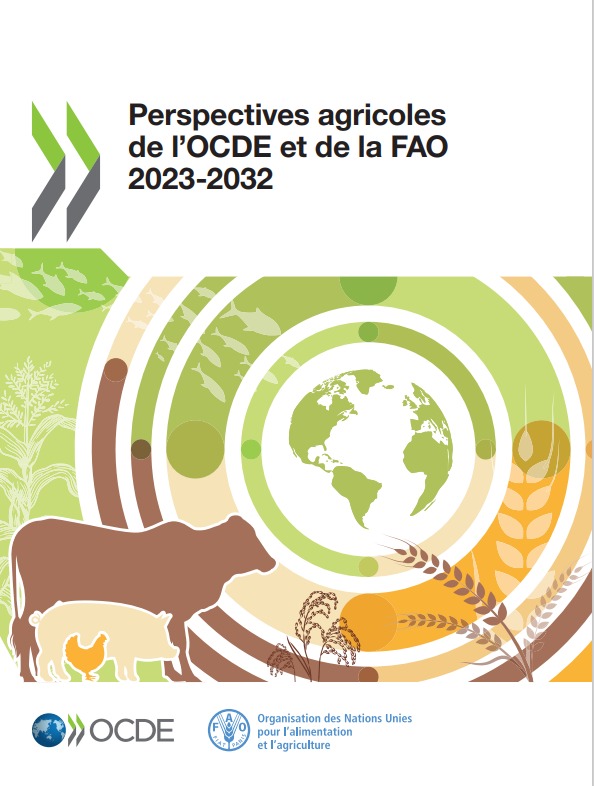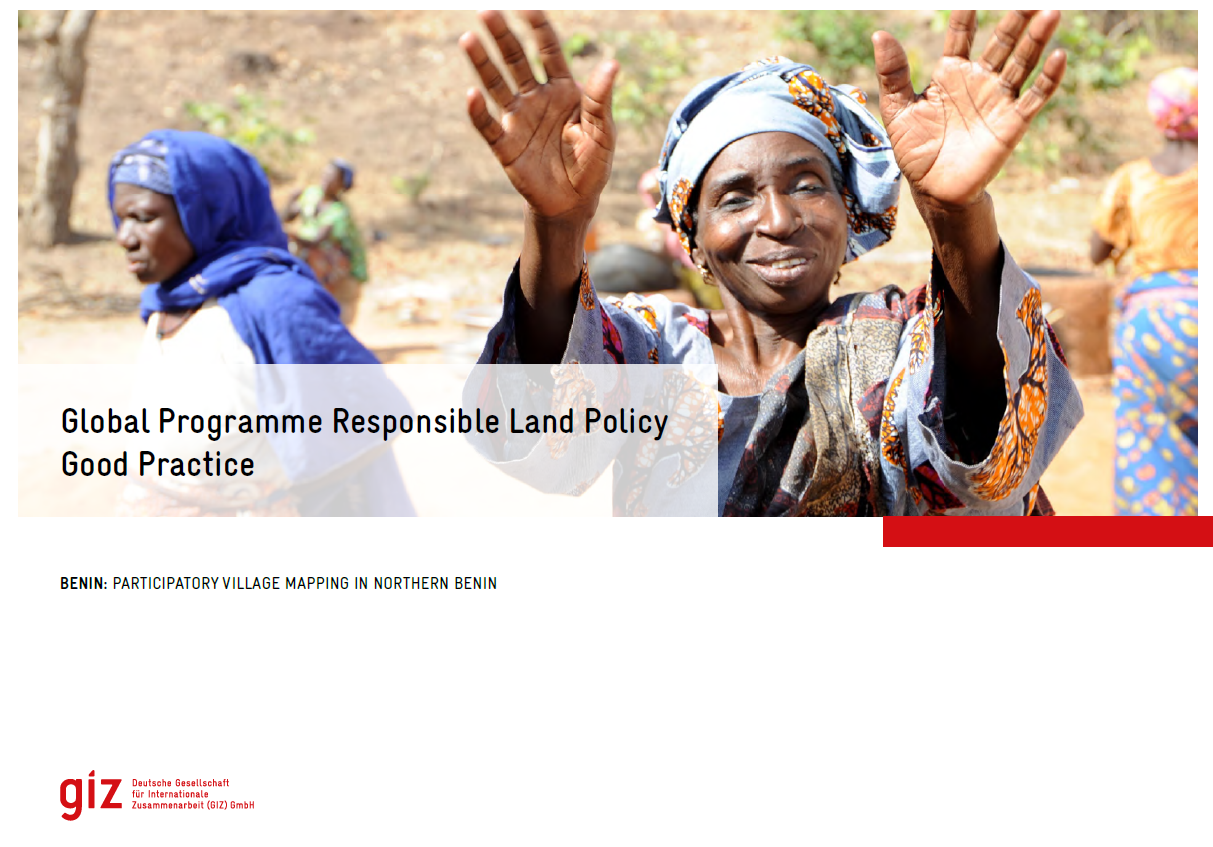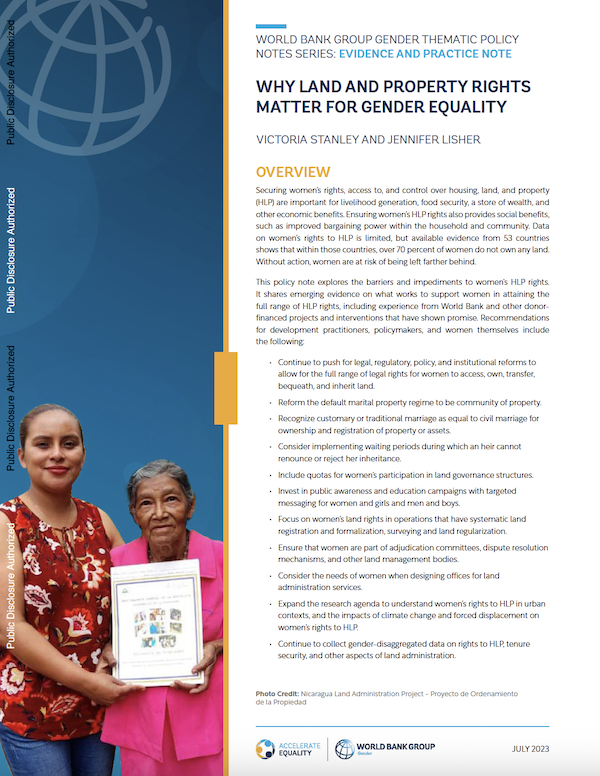Bangladesh Country Overview Paper on Climate Change and Land Tenure Rights
This country overview paper offers a perspective overview of climate change and land tenure rights in Bangladesh. It provides a review and analysis of how the official climate responses and those of other stakeholders impact on the land tenure, use and rights of people. Lastly, it discusses the emergent impacts/implications of climate change on land tenure rights, land use systems and governance.
In undertaking the above discussions, the paper has brought into particular focus the socio-economic issues of poor, marginalized, and at-risk sectors.

